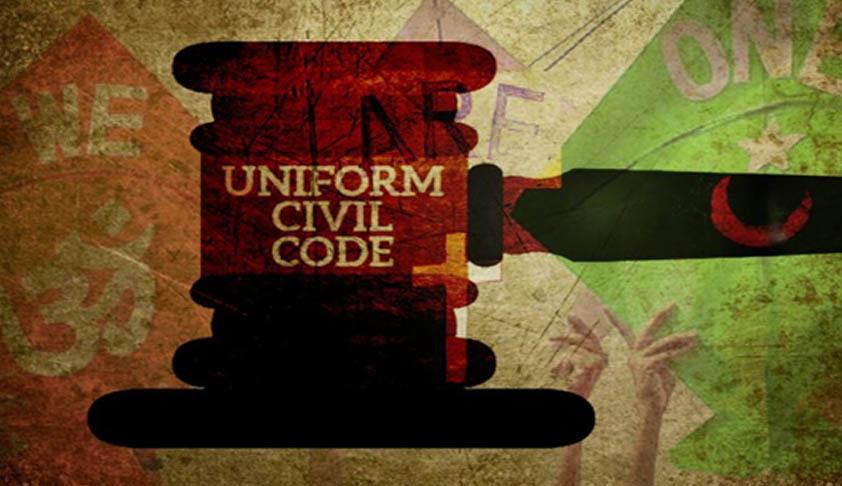Muslim Forum Calls for Unbiased UCC, Warns of ‘BJP Trap’

Image courtesy: Live Law
The Indian Muslims for Secular Democracy (IMSD) has asked secular political parties not to fall into the “BJP’s trap” after the 22nd Law Commission sought views of religious organisations and the public on a Uniform Civil Code (UCC) “without offering a draft” on June 14.
“The timing of the initiative, the absence of a draft and the fact that the next general elections are less than a year away have understandably led to apprehensions that the motive of the Modi-led government is suspect,” the IMSD, a forum of Muslims committed to the values of democracy, secularism, equality and justice, said in a press release on Monday.
“Curiously enough, the Commission has not offered any draft of its own for the people to respond to. This notwithstanding, the IMSD calls upon secular political parties not to fall into the trap set by the BJP,” the forum said adding that “the 21st Law Commission had opined that a UCC was neither necessary nor desirable at this stage”.
Mentioning Article 44 of the Constitution, which states that the State shall endeavor to secure for all citizens a Uniform Civil Code, and Articles 14 (equality) and 15 (non-discrimination), the IMSD said, “A bona fide endeavour must mean encouragement of nationwide discussion and deliberation on the issue aimed at evolving a national consensus.”
The government can’t “impose codes” on a particular religion. Muslim religious bodies, including the All India Muslim Personal Law Board (AIMPLB), Jamiat ulema-e-Hind and the Jamaat-e-Islami Hind have termed the latest move “an attempt at polarisation and a diversionary tactic by the government”, the IMSD said.
Though these religious bodies have said that the proposal is “against the religious freedom and Fundamental Rights guaranteed under Articles 25 and 26” they also “wilfully ignore that Article 25 also states, “Nothing in this article shall… prevent the State from making any law providing for social welfare and reform…”
The IMSD also pointed out that personal laws of all religions inherited at Independence are “grossly discriminatory against women”.
“Several enactments in the last few decades have ushered in some reforms in the family laws concerning Hindus and Christians. But Muslim religious bodies have staunchly resisted any change, never taken a single step in reforming Muslim Personal Law, many of whose provisions are blatantly unjust, anti-women and even un-Quranic.”
Terming the claims of the Indian ulema “false”, the IMSD said, “Muslim Personal Law is not God-given but man-made. Millions of believing, practising Muslims today are citizens of Western democracies without separate family laws for Muslims. In recent decades, many Muslim countries, including some Islamic states, have reformed their family laws.”
Ironically, the ulema “continue to cling to medieval, patriarchal notions of gender relations in the name of protecting Islam” to “protect their interests and their institutional stranglehold over the community”, the forum added.
Alleging that the Congress and other secular parties have “taken no initiative in advocating reforms on the specious plea that the initiative must come from within the community”, the IMSD said, “Given the authority structure within the Muslim society, we do not see any such voice from the community in the foreseeable future.”
Having lost all hope in their religious leaders, progressive Muslim women and men have “no option but to look to the courts and the government of the day for a religion-neutral, gender-just UCC”.
Since a UCC is “not the same as a Common Civil Code, Muslims reserve the right to protest any attempt to impose a majoritarian agenda in the name of uniformity”.
Therefore, the forum “appeals to all political parties to see this issue as one of gender justice and stop pandering to the whimsical and antediluvian fantasies of religious clerics”.
The IMSD also called for several reforms that should be part of a UCC: divorce only through a court, including the right of women to initiate divorce; right to judicious maintenance following severance of marital tie; and a ban on polygamy and the shameful Halala practice.
The forum also demanded gender-just inheritance and guardianship laws and the right to make a will with provision for a minimum percentage of the property to be left behind for heirs; child custody based on what is in the best interests of the minor; the right to adopt by couples or even single women or men; and the right to marry without any limitation due to race, nationality or religion.
IMSD also demanded the inclusion of certain positive aspects of Muslim family law—for example, irretrievable breakdown of marriage to be included among grounds for divorce and a woman’s right to retain her maiden name and identity after marriage.
IMSD co-convener AJ Jawad said that 22nd Law Commission’s notice is “bound to trigger a polarising debate” on the issue. “It would not be surprising if the AIMPLB or the Jamiat-e-Ulema-e-Hind start issuing statements about Islam being in danger.”
The idea of a UCC might appear to “militate against maintaining” India’s diversity and pluralism. “After all, marriage patterns, rules regarding the choice of spouses, laws relating to property, etc. differ from region to region often even within the same religious community. Will the UCC be levelling such diverse practices? This is practically impossible to do given the country's extraordinary cultural and religious diversity,” he said.
A UCC can “take away some of the inequalities within religious communities due to the application of personal laws, which are in direct contravention of our constitutional morality”.
“Justice is the cornerstone. That the personal laws of all communities, including the codified ones, fall short of meeting the evolved standards of gender justice and equality is a given. While no draft of the proposed UCC exists, one can anticipate the UCC to impact Muslim Personal Law on marriage, divorce, polygamy, guardianship and adoption,” he added.
Calling for the Muslim community to introspect on the crossroads between modernity and medievalism, he said, “Practices like triple talaq, Halala and polygamy, steeped in patriarchal and medieval narratives, can hardly be regarded as just and fair. The moot question is are these practices really an integral part of the Shariah?”
Even a cursory study of the history and evolution of the Muslim Personal Law would “reveal that the Quranic injunctions and hadith traditions were subjected to a process of logical study, interpretation and deduction by ordinary mortal minds having no pretensions to divinity”.
Jawad said that a UCC would affect only Muslims but other communities too; “perhaps, more the Hindu community than any other”.
“Therefore, it should not appear that it is only the Muslim community, which is opposing it. This will be used by those who want to paint a regressive picture of Islam and Muslims. On the other hand, by participating in the debate, the Muslim community would demonstrate its openness to the democratic process and retain the moral right to question any code that seeks to submerge its core identity and values.”
Terming “the tone and tenor of the Muslim organisations unfortunate, he said, “It appears that those trying to malign the community will eventually win. It is, therefore, only pragmatic that Muslims should not irrationally reject the UCC draft as and when it comes out. Rather, they should study it carefully and dispassionately, and see how changes in law can benefit their society immensely.”
Without such an engagement, the “BJP government may anyway push through their Hindu majoritarian agenda under the guise of a UCC”, he alleged.
Get the latest reports & analysis with people's perspective on Protests, movements & deep analytical videos, discussions of the current affairs in your Telegram app. Subscribe to NewsClick's Telegram channel & get Real-Time updates on stories, as they get published on our website.
























